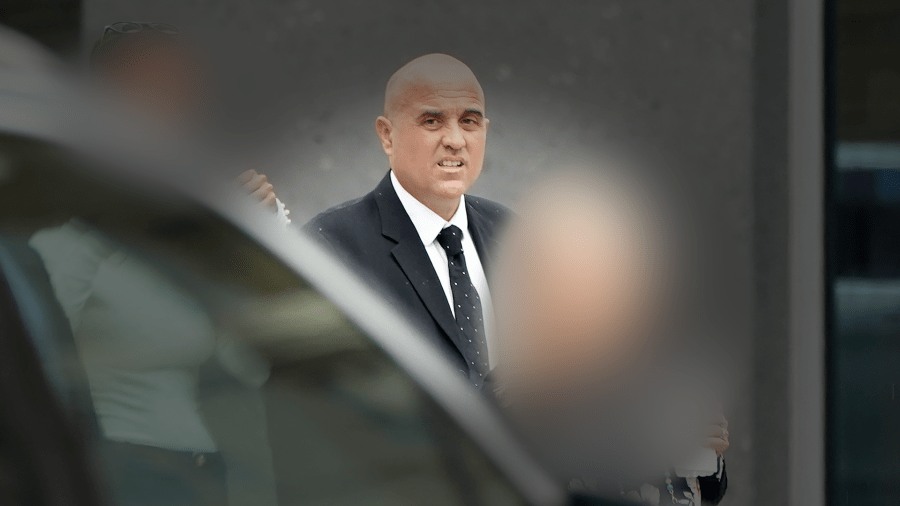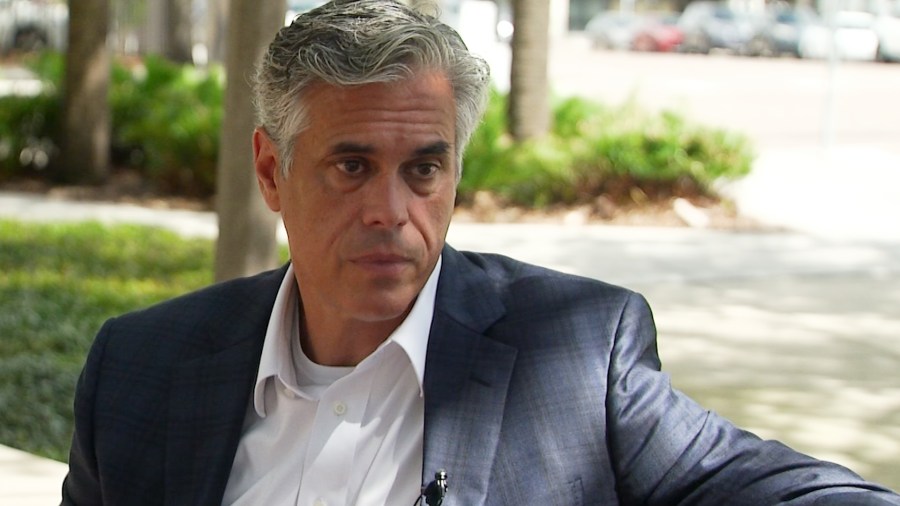TAMPA, Fla. (WFLA) — Immunity can be a tool for prosecutors to compel testimony from reluctant witnesses, but some defense attorneys consider it a potential trap.
Michael Zoumberos was advised it was the second of those possibilities before he testified in Tampa during a federal grand jury proceeding involving an investigation of Drug Enforcement Administration (DEA) agents.
The Department of Justice (DOJ) probe started about six years ago and netted a 2020 guilty plea from Miami-based agent Jose Irizarry. He admitted taking $9 million in taxpayer money meant for undercover drug operations.
The investigation continued, targeting Zoumberos’s brother George who was one of Irizarry’s partners. George Zoumberos has never been charged.
But last March, after Michael Zoumberos pleaded the Fifth during the grand jury hearing, a federal judge hit him with civil contempt, and he was jailed for nearly a year.
“I wouldn’t wish that on my worst enemy,” Zoumberos said. “I just can’t believe that it actually happened.”

Attorney Mark Rankin was a federal public defender, and his practice currently includes federal cases.
Rankin said once someone is awarded immunity, but still refuses to testify, they can be held for up to 18 months for civil contempt.
“As long as you don’t have a legitimate legal fear of being prosecuted because they’ve given you immunity, then you can be compelled to testify,” Rankin said.
Rankin said a hearing is held before a judge to give the witness an opportunity to explain why they will not testify.
“The judge has to look at the situation and determine whether the person has a sincere fear of potentially being prosecuted,” Rankin said.
Zoumberos said he was fearful that even an inadvertent mistake while answering questions during testimony could have led to a perjury charge.
“This has been going on for six years,” Zoumberos said. “So, they’re going to be asking me questions that happened five, six years ago.”

8 On Your Side asked the FBI and the DOJ for more information about the investigation but both agencies declined.
Rankin said while the law supports jail time for civil contempt, this is the first time he recalls it happening in the Tampa Bay area.
“It’s extremely rare that this actually happens,” Rankin said. “Usually, once people are threatened with jail and they have immunity, they’ll even reluctantly give the testimony.”
Zoumberos said he was beaten up, threatened and put in the Pinellas County Jail psychiatric ward while he was held. He has since been diagnosed with post traumatic stress disorder, but he said a lawsuit is not on the table at this time.
“I have no plans of suing because what they did was legal unfortunately,” Zoumberos said.
Rankin agreed Zoumberos would more than likely lose a lawsuit about the civil contempt decision.
But he said there might be grounds for a federal civil rights lawsuit based on Zoumberos’ claim that neither prosecutors nor jail officials informed him about the end of his jail time.
Zoumberos said he found out he was free after his jail issued debt card no longer worked.
“The damages could be whatever the jury believes is fair for the amount of time he was wrongly jailed,” Rankin said. “Someone dropped the ball.”






